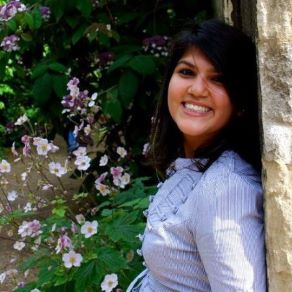
Sahar Mansoor ’13 works as an environmental policy analyst and runs her own zero-waste company, but to truly call herself an environmentalist she needed to embody her principles on a personal level. “I could say I cared about the environment, but if I wasn’t living those values then I wasn’t an environmentalist,” said Mansoor. “That’s why I started trying to live a zero-waste lifestyle, which is a journey in itself.”
A native of Bangalore, India, Mansoor came to Loyola Marymount University looking for “out of the box thinking.” What she found was a vocation. As a political science major, Mansoor took several classes in Environmental Studies that she called life-changing. “[My professors] Brian Treanor and Chris Chapple challenged me to think about the complex interdisciplinary environmental issues our world is facing. I started to think more deeply about my carbon footprint, my actions, my impact on the environment, and how they’re all interconnected.”
“LMU doesn’t just educate your mind,” said Mansoor. “It really educates your heart and helps to mold that vision of who you want to be in the future.”
Mansoor shifted her focus to Environmental Studies and completed her undergraduate degree with a double major. She received a Rotary Foundation Global Grant to attend the University of Cambridge in England, where she earned her master’s degree in Environmental Policy in 2014. Mansoor worked at the World Health Organization in Geneva before returning to India as a policy analyst for SELCO Foundation, a nonprofit think tank focused on providing clean energy solutions to underserved communities. “The foundation is really fun because we get to be innovative and risk-taking with pilot projects that we think could potentially be used in the field,” Mansoor said, citing solar-powered sewing machines as a recent undertaking.
In addition to her work at SELCO Foundation, Mansoor writes articles on environmental policy for the Huffington Post and runs an all-natural personal care company called Bare Necessities, which she sees as a way to help “institutionalize the zero-waste philosophy.”
“There are two issues I’m really passionate about,” Mansoor said. “Improving energy access and rethinking consumption and waste to embody a cradle-to-cradle philosophy. I’m really lucky that I’m doing them both.”